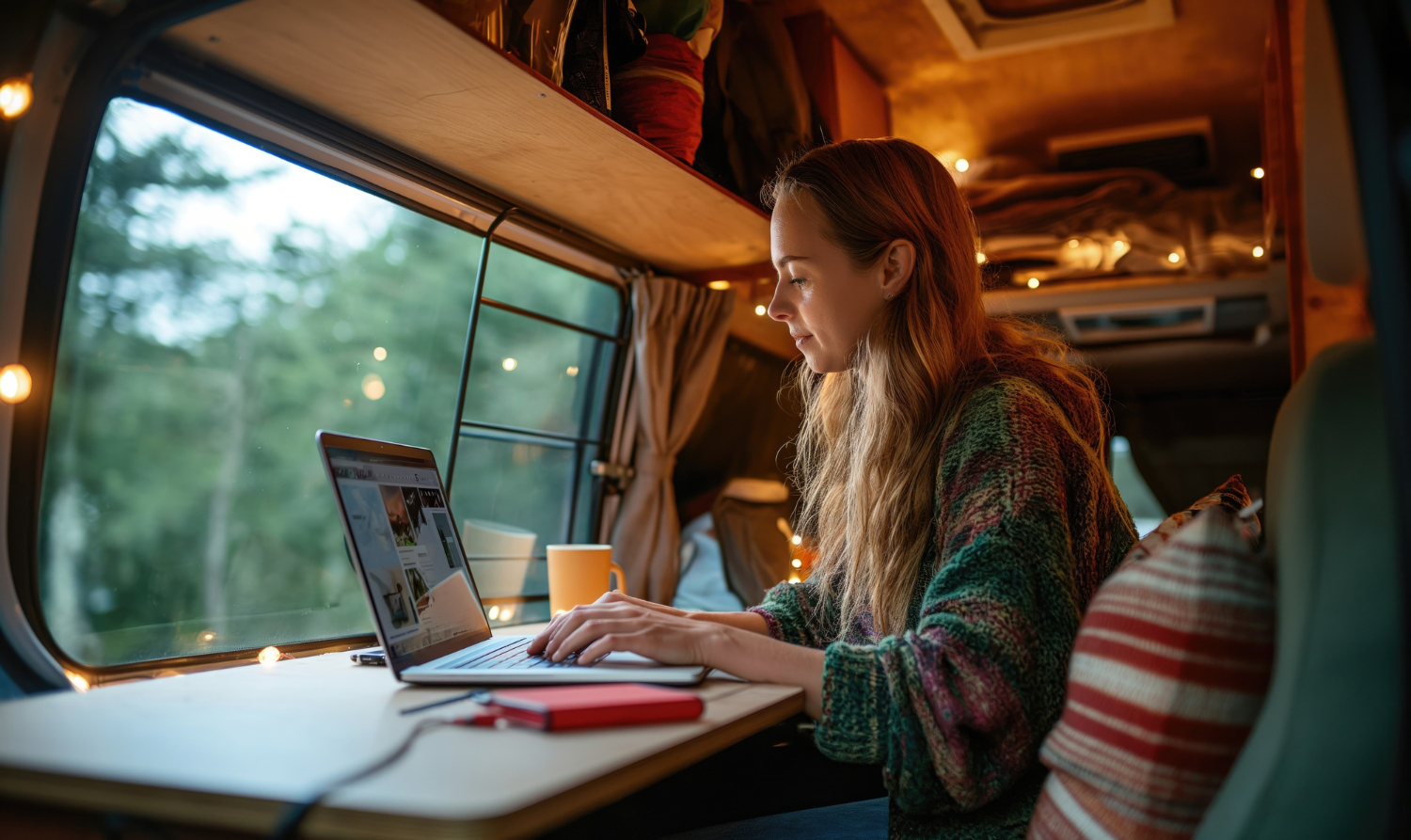Living full-time in an RV is a dream come true for many—offering freedom, flexibility, and the ability to explore the country on your terms. But like any lifestyle, full-time RV living comes with its own set of costs, from fuel and maintenance to campground fees and insurance.
The good news? With a few smart strategies, you can significantly reduce your monthly expenses and make full-time RV living more affordable.
Here’s how to stretch your dollar while enjoying the open road.
1. Choose Your Campsites Strategically
Campground fees can easily become one of your biggest monthly expenses, especially at premium RV parks or during peak travel seasons.
Cost-Saving Tips:
-
Use public lands: Take advantage of free or low-cost camping on Bureau of Land Management (BLM) or U.S. Forest Service land.
-
Join campground memberships: Programs like Thousand Trails, Passport America, and Harvest Hosts can drastically cut nightly rates.
-
Camp longer in one place: Many parks offer discounted weekly or monthly rates, which are often far cheaper than paying nightly.
-
Use apps to find deals: Use tools like Campendium, RV Parky, or iOverlander to find free or budget-friendly camping options.
2. Cut Fuel Costs with Route Planning
Fuel is another major recurring expense for RVers—especially with larger rigs or motorhomes.
Cost-Saving Tips:
-
Map efficient routes: Avoid backtracking and excessive highway miles when possible.
-
Stay longer in each location: Reducing how often you move means fewer fill-ups.
-
Use fuel rewards programs: Join gas station loyalty programs (e.g., Pilot Flying J, Love’s, or GasBuddy) for discounts.
-
Travel off-peak: Drive during less windy days and avoid high-traffic routes to conserve fuel.
3. Limit Eating Out and Cook in Your RV
Dining out frequently adds up fast, particularly when you’re in tourist-heavy areas.
Cost-Saving Tips:
-
Cook most meals in your RV: Invest in compact kitchen appliances like a slow cooker, air fryer, or Instant Pot.
-
Buy in bulk: Stock up at wholesale stores or local farmer’s markets.
-
Plan your meals: Avoid waste and impulsive fast-food stops by planning meals ahead of time.
-
Try campground cooking: Cook over a fire or grill when boondocking to save propane and electricity.
4. Manage Utilities and RV Maintenance Wisely
Utilities in an RV—such as propane, water, and electricity—can add up quickly if you’re not careful.
Cost-Saving Tips:
-
Use solar power: Installing solar panels can reduce reliance on campgrounds and save on electrical costs over time.
-
Conserve water: Take shorter showers and use campground facilities when possible.
-
Maintain your rig: Preventative maintenance saves you from expensive repairs later. Keep tires inflated, check fluid levels, and schedule regular inspections.
-
Learn basic repairs: Handle small fixes yourself instead of paying mechanics or mobile techs for simple jobs.
5. Downsize Subscriptions and Fixed Expenses
Just because you’re mobile doesn’t mean you can’t trim the fat from recurring bills.
Cost-Saving Tips:
-
Cancel unnecessary subscriptions: Streaming services, gym memberships, or magazine subscriptions you don’t use.
-
Switch to prepaid mobile plans: Consider budget-friendly carriers like Visible, Mint Mobile, or Tello with strong national coverage.
-
Review insurance policies: Make sure your RV insurance fits your full-time needs without overpaying. Shop for competitive quotes annually.
6. Use Technology to Track Spending
When living on the road, it’s easy to lose track of what you’re spending.
Cost-Saving Tips:
-
Use budgeting apps: Tools like Mint, You Need a Budget (YNAB), or EveryDollar can help track and manage expenses.
-
Review your spending monthly: Identify areas where you overspend and adjust accordingly.
-
Set savings goals: Allocate money for emergencies, maintenance, and future upgrades.
7. Find Free Entertainment and Experiences
You don’t have to spend money to enjoy the RV lifestyle.
Cost-Saving Tips:
-
Take advantage of nature: Hiking, swimming, biking, and stargazing are all free.
-
Explore small towns: Many host free events, festivals, or markets.
-
Use national park passes: A yearly pass to U.S. national parks (America the Beautiful) can pay for itself in just a few visits.
-
Volunteer for free stays: Programs like Workamping allow you to trade light work for free hookups and accommodations.
Full-time RV living can be a financially sustainable lifestyle if approached with intentionality and smart planning. By being strategic with your travel habits, minimizing unnecessary expenses, and making the most of budget-friendly resources, you can enjoy the freedom of the open road—without breaking the bank.
Whether you’re just starting your full-time RV journey or looking for ways to stretch your dollar further, these tips can help you live large on a smaller budget.

